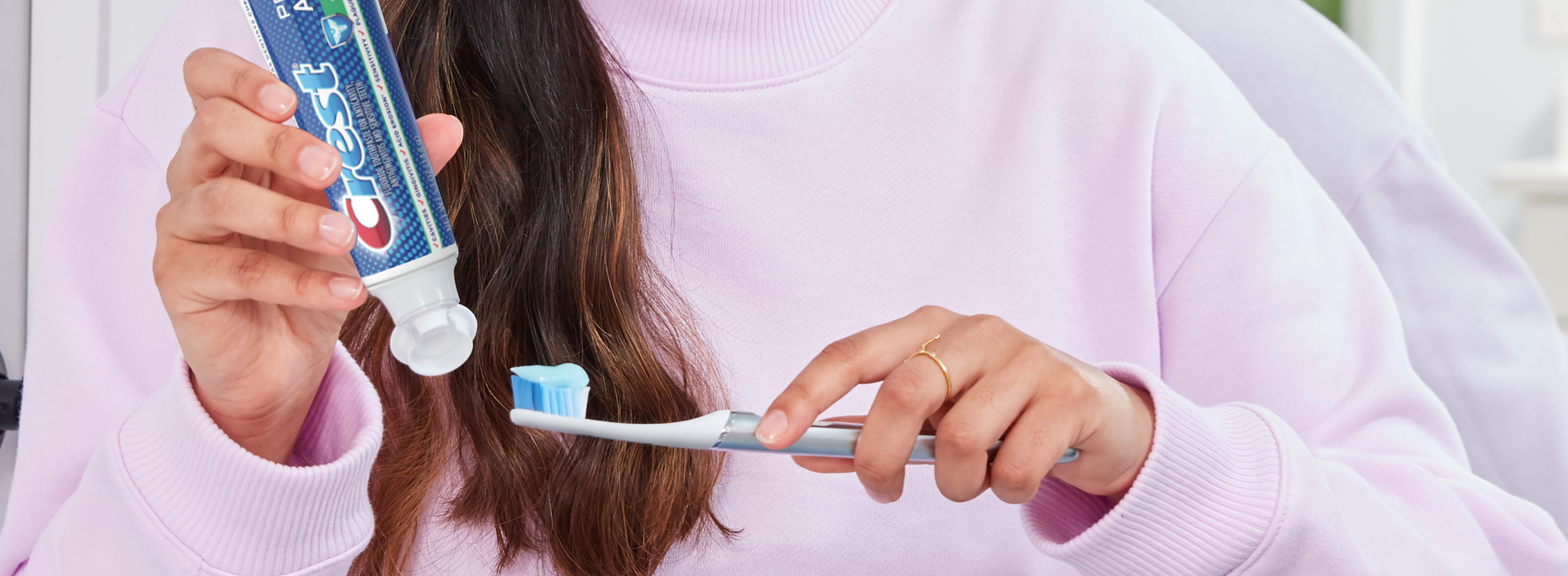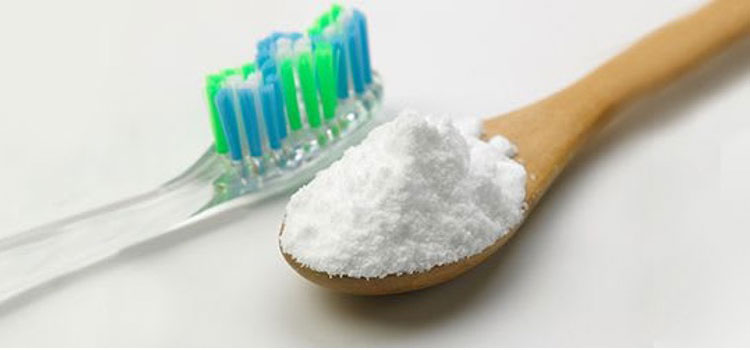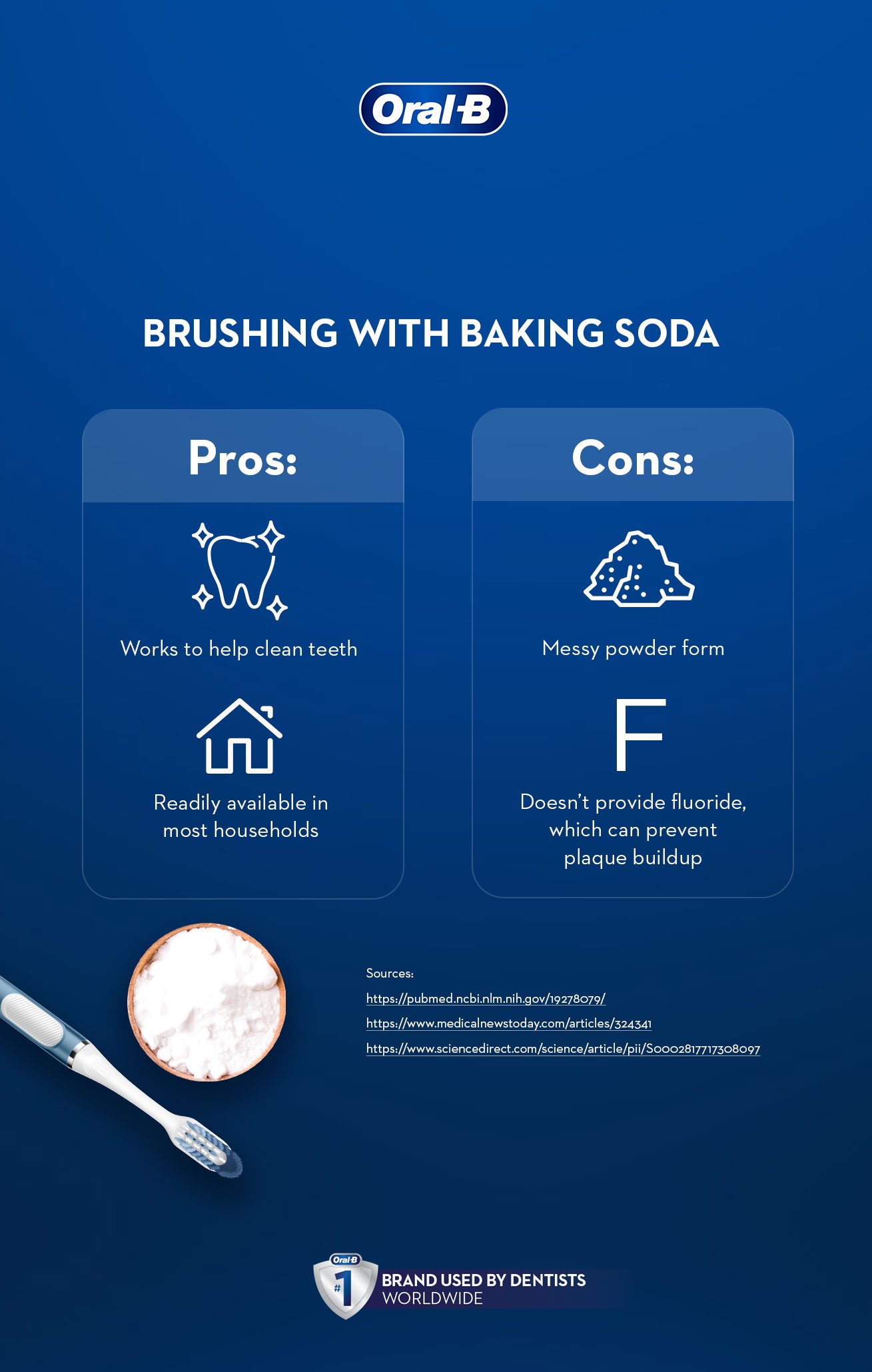Pros and Cons of Brushing Teeth with Baking Soda: Unveiled
Brushing teeth with baking soda can effectively whiten teeth and remove stains, but it may also wear down enamel. Frequent use can lead to sensitivity and gum irritation.
Baking soda has gained popularity as a natural teeth whitening agent. Many people seek alternatives to commercial toothpaste, looking for something more cost-effective and accessible. Baking soda, or sodium bicarbonate, is a gentle abrasive that can help polish teeth and neutralize acids in the mouth.
Its alkaline nature can combat bad breath and freshen your smile. However, it’s essential to consider both the benefits and potential drawbacks of using baking soda for oral hygiene. Understanding these pros and cons will help you make an informed decision about incorporating it into your dental routine.
Introduction To Baking Soda As A Toothpaste Alternative
Baking soda, or sodium bicarbonate, is a popular natural product. Many people use it as an alternative to commercial toothpaste. It has unique properties that can benefit oral health. Some users praise its effectiveness in teeth whitening and odor removal. Others enjoy its low cost and easy availability.
Origins Of Baking Soda In Oral Care
The use of baking soda in oral care dates back centuries. Ancient Egyptians used a mixture of baking soda and salt to clean their teeth.
In the 18th century, baking soda gained popularity in households. It became a common ingredient in homemade toothpaste recipes. Many people valued its abrasive quality for removing stains.
Today, baking soda remains a key ingredient in various dental products. Its reputation for being safe and effective continues to grow.
Rise In Natural Remedies For Teeth Cleaning
Recent years have seen a surge in interest in natural remedies. Many consumers seek alternatives to chemical-laden products.
- Baking soda is affordable and widely available.
- It helps neutralize acids in the mouth.
- Some users report whiter teeth after using it.
More people are turning to baking soda for daily teeth cleaning. It’s a simple and effective option for many.
Brighter Smiles With Baking Soda
Baking soda is popular for its teeth whitening effects. Many people use it to achieve a brighter smile. It’s a common ingredient in many DIY dental care routines.
This section explores the whitening properties of baking soda. It also compares its effectiveness to traditional whitening methods.
Baking Soda’s Whitening Properties
Baking soda has natural whitening abilities. It is slightly abrasive, which helps remove stains from teeth.
- Gentle Abrasive: Removes surface stains.
- pH Balancer: Neutralizes acids that can erode enamel.
- Freshens Breath: Fights bacteria that cause bad breath.
Regular use can lead to visibly whiter teeth. Many users report a brighter smile within weeks.
Comparative Effectiveness To Traditional Whitening
Baking soda offers a natural alternative to commercial whitening products. Below is a comparison table:
| Method | Effectiveness | Cost | Safety |
|---|---|---|---|
| Baking Soda | Moderate | Low | Generally Safe |
| Whitening Strips | High | Medium | Possible Sensitivity |
| Professional Whitening | Very High | High | Safe with Supervision |
While baking soda is effective, results vary. Traditional methods may offer quicker results but can be expensive.
Choose what suits your needs best. Baking soda can be a great choice for those seeking a natural approach.
Cost-effectiveness Of Baking Soda
Baking soda is a popular choice for many. It’s a natural option for teeth cleaning. The cost-effectiveness of baking soda makes it attractive. It offers a budget-friendly alternative to commercial toothpaste.
Affordability Compared To Commercial Toothpaste
Baking soda is much cheaper than most toothpaste brands. Here’s a quick comparison:
| Product | Average Cost |
|---|---|
| Baking Soda (1 lb) | $1.00 |
| Commercial Toothpaste (4 oz) | $3.00 |
As shown, baking soda costs significantly less. You can buy a pound of baking soda for about $1. A typical tube of toothpaste costs around $3. This makes baking soda a clear winner for those on a budget.
Long-term Savings
Using baking soda leads to long-term savings. Here’s why:
- Baking soda lasts longer than toothpaste.
- You can buy it in bulk to save more.
- Less frequent purchases mean lower overall costs.
Consider this:
- Buying a pound of baking soda can last for months.
- Buying commercial toothpaste often leads to repeated costs.
Choosing baking soda helps keep your wallet full. It’s a simple way to maintain oral health without spending a lot.

Ease Of Access And Simplicity
Brushing teeth with baking soda is easy and convenient. This method doesn’t require special tools or products. Most people can find baking soda right in their kitchen. Let’s explore the factors that make this option appealing.
Availability In The Household
Baking soda is a common household item. Here are some reasons why it’s easily accessible:
- Cost-effective: Baking soda is inexpensive.
- Multi-purpose: It has many uses beyond teeth cleaning.
- Long shelf life: It lasts for a long time when stored properly.
- Easy to find: Available in grocery stores and supermarkets.
Diy Toothpaste Recipes
Making toothpaste with baking soda is simple. Here are a few easy recipes:
- Baking Soda and Water: Mix 1 tablespoon of baking soda with water to form a paste.
- Baking Soda and Coconut Oil: Combine 1 tablespoon of baking soda with 1 tablespoon of coconut oil.
- Baking Soda and Essential Oils: Add a few drops of peppermint oil for flavor.
Each recipe allows for customization. Feel free to adjust the ingredients based on your preference.
The Abrasive Nature Of Baking Soda
Baking soda is a popular home remedy for teeth whitening. Its fine texture helps remove stains. Yet, its abrasive nature raises concerns. Using it too often can harm your teeth. Understanding its impact on dental health is essential.
Potential Damage To Tooth Enamel
Tooth enamel protects your teeth from damage. Baking soda’s abrasiveness can wear it down. Here are some key points to consider:
- Enamel Erosion: Frequent use may lead to enamel loss.
- Increased Sensitivity: Thinner enamel can cause tooth sensitivity.
- Higher Decay Risk: Weakened enamel may increase cavities.
Regular brushing with baking soda can cause serious harm. It’s crucial to monitor how often you use it. Consult your dentist for personalized advice.
How Abrasivity Affects Dental Health
Abrasivity impacts overall dental health. It can lead to various issues:
| Issue | Description |
|---|---|
| Enamel Loss | Worn enamel exposes dentin, increasing decay risk. |
| Gum Recession | Harsh scrubbing can irritate gums, causing recession. |
| Staining | Worn enamel may lead to more visible stains. |
Choose gentle toothpaste for daily use. Baking soda can be an occasional treatment. Always prioritize your dental health.
Baking Soda’s Impact On Oral Ph
Baking soda can affect your mouth’s pH balance. A balanced pH is key for healthy teeth and gums. This section explores how baking soda interacts with oral acidity and potential risks.
Neutralizing Mouth Acidity
Baking soda is alkaline. It helps to neutralize acidity in the mouth.
- Acidic environments can lead to tooth decay.
- By raising the pH, baking soda reduces the risk of cavities.
- It can help combat bad breath caused by acid.
Using baking soda regularly can lead to a healthier mouth. It creates a less favorable environment for harmful bacteria.
Risks Of Alkaline Imbalance
While baking soda has benefits, it can pose risks.
- Excessive use may lead to an overly alkaline mouth.
- This imbalance can disrupt natural bacteria.
- It may cause discomfort or irritation in the gums.
Always balance baking soda use with regular toothpaste. Consult your dentist for guidance on safe use.
Lack Of Fluoride In Baking Soda
Baking soda is a popular choice for teeth cleaning. Many people love its natural properties. However, it lacks fluoride, an essential mineral for dental health. This section explores the significance of fluoride and how it compares to baking soda.
Importance Of Fluoride For Tooth Decay Prevention
Fluoride plays a crucial role in maintaining healthy teeth. It strengthens tooth enamel and helps prevent decay. Here are some key benefits of fluoride:
- Strengthens Enamel: Fluoride makes teeth more resilient.
- Reduces Cavities: It lowers the risk of developing cavities.
- Repairs Early Decay: Fluoride can reverse early signs of decay.
- Promotes Remineralization: It helps restore minerals to damaged enamel.
Without fluoride, teeth become vulnerable. This can lead to serious dental issues. Regular fluoride use is recommended by dental professionals.
Supplementing Fluoride With Baking Soda
Baking soda has its advantages. It can whiten teeth and freshen breath. Yet, it cannot replace fluoride’s protective effects. Here’s how to combine both effectively:
- Use fluoride toothpaste daily.
- Brush with baking soda once a week.
- Consider fluoride mouth rinses.
- Visit your dentist for fluoride treatments.
This combination helps maintain a bright smile. It ensures strong teeth and combats decay effectively.
| Feature | Baking Soda | Fluoride |
|---|---|---|
| Whitening | Yes | No |
| Decay Prevention | No | Yes |
| Natural | Yes | No |
| Remineralization | No | Yes |
Taste And Texture Considerations
Baking soda offers a unique flavor and texture. Many people find these aspects surprising. Understanding the taste and texture is key to using baking soda for dental care.
The Palatability Challenge
Baking soda has a distinct taste. It is salty and slightly bitter. Some users enjoy this flavor, while others do not. This can affect regular use.
- Pros:
- Freshens breath
- Neutralizes acidity
- Cons:
- Some may dislike the taste
- May leave a gritty feeling
Adjusting To The Sensory Experience
The texture of baking soda is different from regular toothpaste. It feels grainy and coarse. This can be off-putting for some users.
People often take time to adapt. Here are some tips to help:
- Start with a small amount of baking soda.
- Mix it with water or mouthwash.
- Gradually increase the amount as you adjust.
Experimenting with flavors can help too. Adding a drop of essential oil may improve taste. This makes the brushing experience more enjoyable.
Safety And Recommendations
Brushing teeth with baking soda can be beneficial. Yet, safety is crucial. Understanding how to use it properly helps protect your teeth and gums.
Dentist’s Perspective On Baking Soda
Dentists often have mixed feelings about baking soda. Here are key points:
- Effective Whitening: Baking soda can help whiten teeth.
- Gentle Abrasive: It removes surface stains without damaging enamel.
- pH Neutralizing: Baking soda can balance mouth acidity.
- Not a Complete Substitute: It lacks fluoride, essential for decay prevention.
Consulting your dentist is wise before using baking soda regularly. They can provide personalized advice.
Best Practices For Using Baking Soda Safely
Using baking soda safely requires some guidelines. Follow these best practices:
- Mix with Water: Create a paste using one teaspoon of baking soda and water.
- Limit Use: Use it once or twice a week.
- Don’t Overdo: Excessive use can wear down enamel.
- Combine with Regular Toothpaste: Use baking soda alongside fluoride toothpaste.
- Rinse Thoroughly: Ensure you rinse your mouth well after brushing.
By following these tips, you can enjoy the benefits of baking soda while keeping your teeth safe.


Frequently Asked Questions
Is Baking Soda Safe For Brushing Teeth?
Yes, baking soda is generally safe for brushing teeth. It acts as a mild abrasive, effectively removing plaque and stains. However, overuse can lead to enamel erosion. It’s best to use it occasionally, not as a daily replacement for regular toothpaste.
How Does Baking Soda Whiten Teeth?
Baking soda whitens teeth due to its abrasive properties. It gently scrubs away surface stains caused by food and beverages. Additionally, it creates an alkaline environment that reduces acid levels, promoting a healthier mouth. Regular use can lead to a brighter smile.
Can Baking Soda Damage Tooth Enamel?
Yes, excessive use of baking soda can damage tooth enamel. Its abrasive nature can wear down enamel over time. To minimize risk, limit its use and combine it with regular toothpaste. Always consult with a dentist for personalized advice on oral care.
What Are The Benefits Of Using Baking Soda?
Baking soda has several benefits for oral health. It helps remove stains, freshens breath, and neutralizes acids in the mouth. Additionally, it can aid in balancing pH levels, promoting a healthier oral environment. Use it wisely for the best results.
Conclusion
Brushing teeth with baking soda has both advantages and drawbacks. It can effectively whiten teeth and remove stains. On the downside, it may damage enamel with excessive use. Weigh these pros and cons carefully. Always consult a dentist for personalized advice on maintaining optimal oral health.
Choose what’s best for you!




